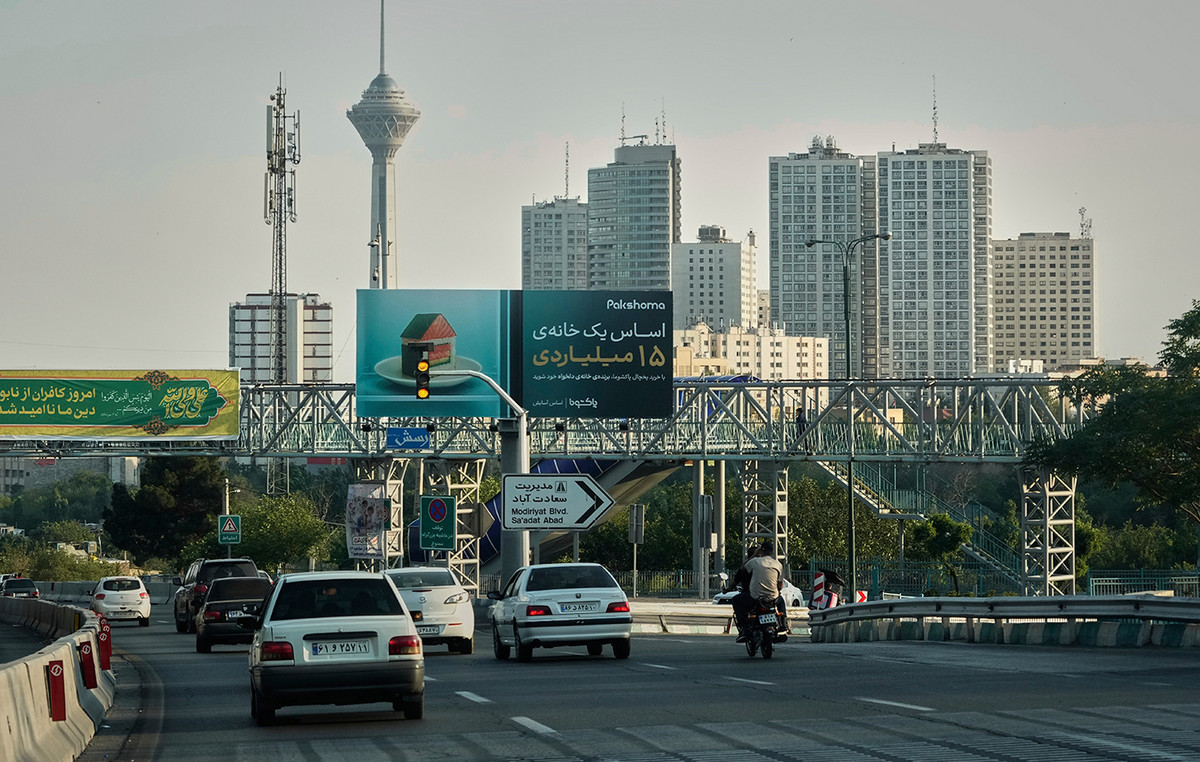When Giulia Manca traveled to Pianosa, a former Italian prison island, in 2011, she was looking forward to a relaxing break in the sun before heading home.
But 12 years after staying at the beachfront Hotel Milena, run by supervised inmates on parole, Manca has remained on the island known as Alcatraz of the Tyrrhenian Sea.
Now the only woman living in the ghost village of Pianosa, part of the Tuscan archipelago’s marine park, Manca serves as the hotel’s manager and oversees the island’s rehabilitation program, run by Arnera, a non-profit organization with the mission to help vulnerable people like prison inmates get back into society.
“I stayed at the hotel for a week and I didn’t want to leave,” Manca told CNN. “It was a unique holiday and the rehabilitation project fascinated me, seeing how these inmates were given a second chance at life.”
Second chance hotel?
“I fell in love with the Pianosa. Its silence, the paradisiacal turquoise sea, the peaceful starry nights.”
Once nicknamed the Devil’s Island, Pianosa, located between Corsica and the mainland, is now a blissful retreat, beloved for its beautiful beaches and verdant vegetation.

Manca is one of two permanent residents on the island, she lives and works alongside a jailer, as well as 10 inmates, who work as cooks, gardeners, waiters, beach cleaners and dishwashers at Hotel Milena, the only accommodation on the island. .
Surrounded by pine trees, Hotel Milena has ceilings painted with frescoes and has 11 rooms with wooden furniture and a stunning view of the sea, as well as a large courtyard, where inmates serve drinks at night to guests, a restaurant and a bar.
Manca had been staying at the year-round hotel for just a few days when the then manager informed her that the establishment was experiencing financial difficulties and was in danger of closing.
If that happened, the employees would have to be transferred back to the prison, ending their stint in Pianosa.
“I felt I had to do something to help them or they would have gone back behind bars, inside tiny cells with no chance of starting over and learning a job that can help them when they are released,” adds Manca, who previously worked with as a tourist agent.
Manca, who grew up in Tuscany, decided to stay and take over as manager of the hotel. She says she initially worked for free, using her management skills to help secure the hotel’s future.
In just a few years, Manca was able to change things significantly, and Hotel Milena has become a popular venue for weddings and birthday parties, with guests attracted by the hotel’s unconventional staff.
“Alcatraz of the Tyrrhenian Sea”
Situated near Gorgona, another Italian prison island, Pianosa was created during the 18th century to confine bandits and revolutionaries.
The island served as the base for a maximum security prison until 1998, when it was closed. Its few residents eventually left and Pianosa was deserted for many years.
Visitors were not allowed on the island until relatively recently, and those currently visiting can only go as part of an organized boat trip that must be booked through specific tour operators.
To be admitted to Hotel Milena’s rehabilitation program, a candidate must have served at least a third of their sentence in prison and have passed a series of rigorous psychological and social assessment tests.
Over the past 12 years, Manca has handled close to a hundred criminals paroled for a myriad of crimes, including murder.
Though she notes that many of those arrested have been convicted of much more than “stealing daisies,” Manca has always felt comfortable on the island and considers it something of a safe haven.
She also strongly believes that former offenders should be given a chance to contribute to society rather than spend more time behind bars.
“I believe in the power of redemption and that even offenders should be given a second chance, not rot behind bars, but be actively involved in rehabilitation tasks,” she says. “I like to see them come back to life through work.”
Known as the “Queen of the Pianosa”, Manca admits that her work raised suspicions among friends and loved ones because of the risks of being the only woman next to a group of inmates.
“People kept saying I was crazy to take this job,” says Manca, who is also a member of Arnera. “Being the only woman to work and live side by side with male criminals who have not been charged with minor crimes.”
“But I never felt fear or worry. I never thought twice. I feel safer with them here than I do in the city with all those freaks running around, you never know who you might run into.”
While being in charge of a group of offenders has its challenges, Manca says he does his best to create clear boundaries to ensure the rehabilitation program is effective.
She explains that her relationship with the team is one of mutual respect and she has managed to find a balance by keeping her distance and being authoritative, yet open, to support them.
Each week, Manca boards the ferry for the three-hour sea voyage to mainland Tuscany to run errands and attend to bureaucratic matters, leaving at dawn and returning to Pianosa at night.
Manca points out that, unlike neighboring Gorgona, where convicts must return to their cells after turning off the clock, those in Pianosa can walk freely.
high success rate
Inmates receive a monthly salary for their hotel jobs and stay in the former prison barracks, which have been renovated into cozy studios with a gym, TV, kitchen and private rooms with bathrooms.
They are also given cell phones so they can keep in touch with their families.
Italian prisons are among the most inhumane and overcrowded in Europe, with 120 inmates for every 100 beds, according to a 2020 Council of Europe report, while prison suicide has increased by 300% since 1960, with a 75% relapse. in crime.
Therefore, Pianosa is undoubtedly a much more attractive alternative for those who are reaching the end of their sentence.
Manca is proud of the success of the “Pianosa model”, explaining that the rate of return to crime for those who spent some time on the island has dropped to 0.01%.
“At night, they are free to go to the beach and go for a swim,” explains Manca.
“However, they must leave their quarters early in the morning and return at a specific time in the evening, they are still under surveillance and there is the guard watching over them.

Offenders can serve the remainder of their sentence working at the hotel if they behave well, and some have spent five to ten years there.
But those who don’t show a willingness to change risk being sent back to prison to serve the remainder of their sentence.
“All of them have served at least a third of their sentence in prison and have undergone rigorous psychological and social assessment tests to determine that they are no longer dangerous and fit for the rehabilitation program, [e] who really regret what they did,” he said.
“They must demonstrate their willingness to work and prepare themselves for a better life every day. I do not accept slips.”
Manca likes to keep in touch with those who left Pianosa to start their lives over, putting into practice the knowledge acquired on the island through social networks.
She explains that some have become counselors for inmates in other prisons after working at the hotel.
Manca is very proud of her role in the process and says those who initially doubted her decision to stay in Pianosa years ago have now changed.
“Even my daughter Yolanda, who was a bit skeptical of my work as a child, has come to appreciate the island and understand the importance of what I do. She now tells me that I am a lucky person,” says Manca.
Source: CNN Brasil
Bruce Belcher is a seasoned author with over 5 years of experience in world news. He writes for online news websites and provides in-depth analysis on the world stock market. Bruce is known for his insightful perspectives and commitment to keeping the public informed.







